The black soldier fly, which goes by the scientific name Hermetia illucens, is a very common type of fly. It belongs to the family Stratiomyidae, which is composed of roughly 1,500 species that are often simply known as soldier flies. Because of their helpful role in composting, the larvae of black soldier flies (often called “BSFL” or “Phoenix Worms”) are perhaps better known than the adult flies. In this article, we’ll give some basic information about both black soldier flies and the larval form of this creature.
Like so many biological accounts of species, we’ll begin with the life cycle of the black soldier fly, and like so many descriptions of life cycles, we’ll begin with eggs. The eggs laid by the adult flies, which are generally deposited near decaying matter (e.g., manure), take about four days to hatch. Larvae emerge from the eggs, and these larvae vary in size from about 1/8 to 3/4 of an inch (or 3 to 18 millimeters). After several weeks, once the larvae have finished growing, they enter the prepupae stage of their life cycle. During this period, they stop eating and empty their gut, and their mouths change into a type of appendage that is helpful for climbing. As these changes occur, they seek a sheltered area that is dry in order to pupate – to grow into an adult, basically. The adult black soldier fly that results from this process looks strikingly similar to the organ pipe mud dauber wasp, making the soldier fly a mimic (i.e., a species that looks like another species, sometimes for defense). As far as adulthood goes, the black soldier fly has got it kind of rough: they do not have functioning mouths (because their mouth parts have become a climbing appendage), and they spend their five to eight days on earth searching for mates with whom they can reproduce. They spend their brief window of existence as bachelors and bachelorettes on the prowl. In this regard, they’re a bit like the cast members of Jersey Shore.
As we mentioned above, a lot of people have heard of black soldier flies only because of the larval form of this species, commonly written as “BSFL” (short for, naturally, “black soldier fly larvae”). BSFL are often used in certain types of composting operations, namely, those that seek to convert nutrient-rich waste into animal feed. (For this reason, they are fundamentally different than the worms used for composting, like red worms, which convert waste into a soil conditioner.) When used for composting, BSFL also prevent other types of flies (e.g., houseflies) from laying eggs in the waste being composted, which would interfere with the operation. Since they are so helpful for composting, many people build BSFL colonies, which require adult black soldier flies. Fortunately, if the adult flies get out of the area used for breeding, they are nowhere near as annoying as regular houseflies. Black soldier flies don’t fly around much, they are easy to catch and relocate (because they don’t avoid being touched), and they don’t bite or sting.
BSFL are also used to feed animals, like reptiles. Only the larvae are needed for feeding, so people who breed BSFL for this purpose have developed special bins to harvest just the larvae, preventing them from maturing into adult flies. (Of course, some larvae are allowed to grow into flies to produce another generation of larvae.) BSFL are also sold commercially as feeder insects, perhaps most famously by Dr. Craig Sheppard, who sells the larvae under the name “Phoenix Worms,” which is often used to refer to BSFL in general.
For flies, the black soldier flies have a lot going for them. They aren’t much of a nuisance when adults, and in the larval form they have important uses. If only all insects were so considerate and helpful…
All About Worms is always free, always reader-supported. Your tips via CashApp, Venmo, or Paypal are appreciated! Receipts will come from ISIPP Publishing.



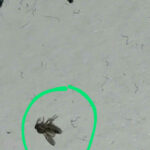
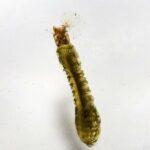
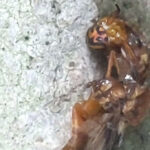
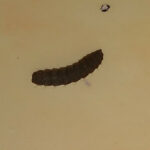
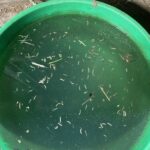
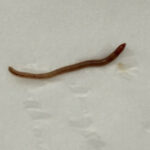
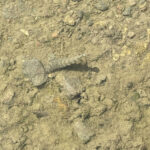
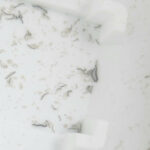

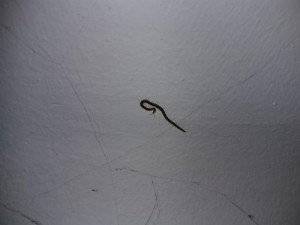


Pour bleach in your rv tolet and let it set…it will kill them then when you dump your septic they will be gone
I found these larvae coming from my Rv toilet and one in my dogs nose! How am I getting these and how to get rid of them. I’m afraid to use my toilet and live full time in my Rv. The larvae was 4/5 up my dogs nose ! HELP